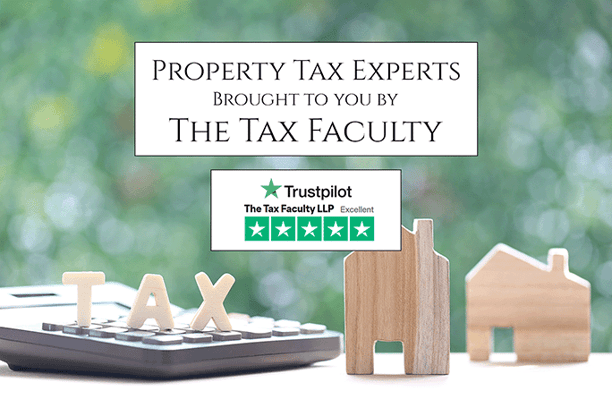Capital Gains Tax on Commercial Property in the UK: What You Need to Know
Commercial property ownership can be a profitable investment, but understanding how Capital Gains Tax (CGT) applies when selling or transferring such properties is essential. Whether it is an office, retail unit, warehouse, or industrial space, the CGT implications can significantly affect your profit.
Our guide will walk you through everything you need to know about CGT on commercial property in the UK, including taxable events, applicable rates, reporting requirements, and strategies to reduce your liability while staying compliant with HMRC regulations.
What is Capital Gains Tax on Commercial Property?


CGT on commercial property is charged on the profit made when you sell or dispose of a property that has increased in value since it was purchased. One significant difference is that, unlike residential property, commercial property does not benefit from Private Residence Relief, so the entire gain is usually taxable.
Understanding the rules, allowable deductions, and potential reliefs is key to accurately calculating your CGT liability and reducing the amount payable when selling a commercial property.
How is Capital Gains Tax Calculated on Commerical Property?


To calculate CGT on commercial property, take the following steps:
Determine the Gain: The gain is the difference between the disposal value (e.g., sale price) and the acquisition cost (e.g., purchase price), minus any allowable expenses.
Deduct Allowable Costs: You can deduct costs such as legal fees, stamp duty, valuation fees, and improvement costs (e.g., structural renovations).
Apply the Annual Exemption Allowance: For the 2025 tax year, individuals can offset the first £3,000 of gains against CGT.
Example: If a commercial property has a purchase price of £500,000 and a sale price of £700,000, with allowable costs of £20,000 the gain will be calculated as £700,000-£500,000 -£20,000 = £180,000.
Therefore, the taxable gain after the £3,000 allowance would be £177,000.
Capital Gains Tax Rates for Commercial Property in the UK


The rate of Capital Gains Tax for commercial property and other assets that are not residential property will depend on the date on which the disposal of the asset took place.
Up to and including 29th October 2024, disposals of these assets were taxed at 10% at the basic rate and 20% at the higher rate.
From 30th October 2024 onwards, these assets are charged at 18% at the basic rate and 24% at the higher rate. These rates align to the same rates as residential property.
Reliefs and Deductions for Capital Gains Tax on Commercial Property


Several reliefs may reduce your CGT liability on commercial property transactions:
Annual Exemption Allowance: Offset the first £3,000 of gains for the 2024 tax year.
Business Asset Disposal Relief (BADR): Formerly Entrepreneurs' Relief, BADR allows qualifying gains to be taxed at a reduced rate of 10%. This applies if the commercial property is used for business purposes and certain conditions are met.
Rollover Relief: If you reinvest the proceeds from the sale of a commercial property into another qualifying business asset, you can defer CGT liability.
Loss Relief: If you incur a loss on the disposal of a commercial property, this loss can be used to offset gains from other assets in the same tax year or carried forward to future years.
Consulting a tax advisor can help you identify which reliefs apply to your circumstances.
Reporting Capital Gains Tax on Commercial Property


You must report and pay CGT on the sale of a commercial property to HMRC. Key reporting requirements include:
Reporting Timeline: For non-residential property, gains must be reported by the deadline of your Self-Assessment Tax Return.
Documentation: Keep detailed records of the property purchase, sale, associated costs, and any improvements made.
Failure to report gains accurately and on time can result in penalties and interest charges.
Frequently Asked Questions About Capital Gains Tax on Commercial Property


Q: Do I need to pay CGT if I transfer a commercial property to a family member?
A: Yes, transferring a commercial property to a family member is treated as a disposal for CGT purposes. Tax is calculated based on the market value of the property at the time of transfer, regardless of whether money changes hands.
Q: Can I defer paying CGT if I reinvest the proceeds from a sale?
A: Yes, you may be eligible for Rollover Relief, which allows you to defer CGT if the proceeds are reinvested into another qualifying business asset within a specific timeframe.
Q: Are there tax benefits for selling a commercial property used in a business?
A: Gains from the sale of a business asset, such as a commercial property, may qualify for Business Asset Disposal Relief, reducing the CGT rate to 10% (subject to eligibility criteria).
Q: Can I deduct VAT when calculating CGT on a commercial property?
A: While VAT is not included in the gain calculation itself, it can impact the overall transaction costs. It’s essential to account for VAT correctly as part of your allowable expenses.
Q: How does HMRC track property transactions?
A: HMRC collects data from sources such as conveyancers, estate agents, and Land Registry records. Accurate reporting of gains is critical to avoid penalties or investigations.
Q: Can I offset losses from other properties against CGT on a commercial property?
A: Yes, losses from the sale of other assets can be used to offset gains on commercial property, reducing your overall CGT liability.
Q: How long do I have to report CGT on a property sale?
A: You must report and pay CGT on property sales to HMRC within 60 days of the completion date. Missing this deadline could result in penalties and interest charges.
Q: Are there any exemptions when gifting property to a spouse or civil partner?
A: Yes, transfers between spouses or civil partners are exempt from CGT, provided you both live together during the tax year in which the transfer occurs.
Q: What qualifies as a business asset for tax relief purposes?
A: Business assets may include commercial properties, machinery, or equipment used exclusively for business purposes. Eligibility for relief depends on specific criteria, so professional advice is recommended.
Q: How can I reduce my CGT liability on a commercial property?
A: To minimise CGT, you can use strategies like claiming all allowable expenses, utilising your annual exemption allowance, and taking advantage of reliefs such as Rollover Relief or Business Asset Disposal Relief.
Consulting a tax professional can ensure you don’t miss opportunities to reduce your liability.
Get Expert Help with Capital Gains Tax on HMRC Checks
Managing CGT on commercial property requires careful planning and a thorough understanding of the rules. Contact us today for expert advice tailored to your unique circumstances.
Please feel free to contact us on info@thepropertytaxexperts.co.uk or call us free on 0800 0016 878 for a free initial consultation.
Your Trusted Partner For Property Tax Solutions
We specialise in helping individuals and businesses effectively manage their property tax obligations. Our promise to all clients - you will pay the least amount of tax possible, while complying with your legal requirements.
Led by Charles Tateson, Managing Director of The Tax Faculty and award-winning tax advisor with extensive HMRC experience, our team is dedicated to providing personalised and effective tax solutions for both UK residents and international clients who own UK-based property.













